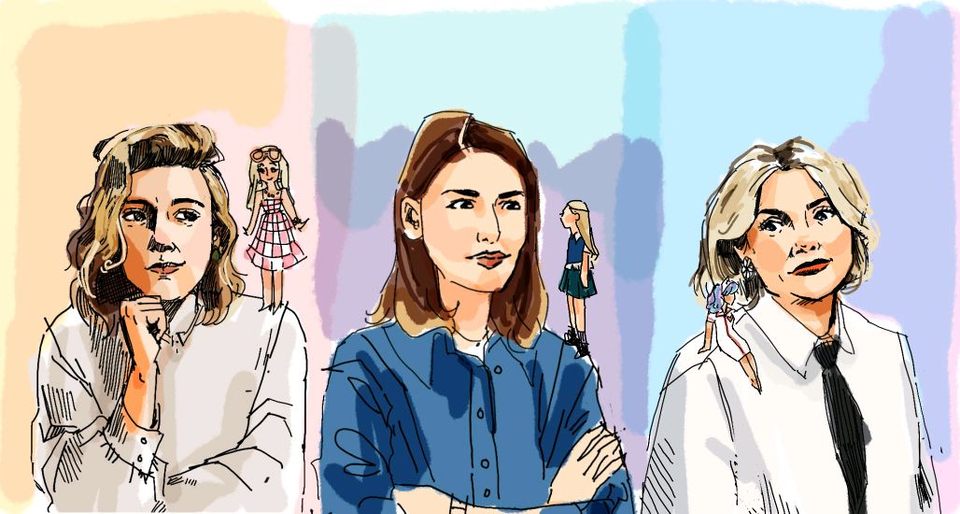As the country grapples with renewed battles over women’s rights, in light of the 2024 election results, the powerful voices of female filmmakers have emerged — illuminating the diverse, resilient and unapologetically complex experience of being a woman.

Some of my favorite modern-day directors, Greta Gerwig, Sofia Coppola and Emerald Fennell create films that are more than just stories. They create cultural battle cries, reclaiming the narrative around womanhood and breaking down the walls of control and expectation that society has long imposed.
As a woman who has always dreamt of being in the film industry, I often look up to stories that redefine what it means to be a woman. Watching female-directed films has become more than just an exercise in inspiration — it feels like a shared journey, a glimpse into a community of women pushing against the constraints of society, offering their voices and demanding their stories be heard.
They have helped me realize the importance of using art to challenge and reshape perceptions of womanhood, encouraging girls like me to find strength in our own voices through the power of storytelling.
These stories hold a unique weight, especially in a time where the political landscape continues to test the boundaries of women’s autonomy. They resonate deeply, not only because they capture the complexities of being a woman, but because they also expose the cracks in a world that often seeks to define women before we can define ourselves.
Greta Gerwig’s “Barbie”
“Barbie” is a brilliant reimagining of a character that has represented countless conflicting ideals of femininity for decades. Gerwig’s Barbie does not merely exist in her perfect, plastic world to look beautiful or embody an ideal. Barbie is thrust into a journey of self-realization and self-assertion that mirrors the lives of countless women.
As Barbie navigates existential questions of self-worth, meaning and the suffocating limitations imposed by men, she becomes a figure of empowerment. Gerwig dares us to look beyond the superficial and imagine Barbie as a woman in search of her own truth — a woman who questions, disrupts and redefines herself.
Billie Eilish and FINNEAS’s song “What Was I Made For?” poignantly mirrors Barbie’s journey of self-discovery, capturing her search for meaning and purpose. Eilish’s tender vocals add emotional depth, highlighting Barbie’s shift from a perfect doll to a woman seeking her true self.
Gerwig’s Barbie embodies a defiance that resonates deeply in today’s landscape, where the fight for autonomy over our bodies, lives and identities is front and center. This Barbie is no passive doll, she’s a symbol of resilience. Her story of transformation serves as a reminder that even in worlds designed to contain us, we can break free and carve out a new vision for ourselves — one defined not by societal expectations, but by our true authentic selves.
Sofia Coppola’s “The Virgin Suicides”
In “The Virgin Suicides,” Coppola explores what it is like to grow up as a girl and the fatal consequences of repressing young women’s identities and desires. In the film, based on Jeffrey Eugenides’ novel of the same name, the Lisbon sisters are trapped not only by their parents but also by the romanticized gaze of the boys who watch them.
The sisters are stripped to the boys’ perception of them rather than feeling seen and understood as complex human beings.
In today’s context, “The Virgin Suicides” becomes a cautionary tale, underscoring the importance of allowing young women the space to define themselves rather than relying on others. The film serves as a somber reminder of the costs of limiting women’s choices and voices, a message that resonates with the ongoing fight for women’s rights. Coppola’s work promotes the idea that women must be seen and heard for who they truly are, or the world risks losing something beautiful and irreplaceable.
Emerald Fennell’s “Promising Young Woman”
Emerald Fennell’s “Promising Young Woman” channels the righteous anger of generations of women who have been silenced, dismissed and wronged. The film’s protagonist, Cassie, embodies a female experience often left unspoken — the aftermath of sexual assault and the ongoing, pervasive effects of male-dominated power dynamics.
Cassie’s quest for revenge becomes a dark but prominent metaphor for the pent-up frustrations of many women who have faced injustice within systems that seldom offer protection or empathy.
Cassie’s revenge is not simply a small, individual act but a response to a larger cultural issue, challenging the notion that women should just “move on” from traumatic experiences that deeply alter their lives. Her journey underscores how society often normalizes the suppression of women’s voices and experiences, making “Promising Young Woman” a portrayal of the reality of these systemic failings set in place by men.
It is a chilling reminder that when women’s voices are silenced, they may find other ways to assert their agency, even if those paths are marked by pain and anger.
As someone whose end goal is to become a female director, this moment in time feels especially heavy, especially in the male-dominated industry that is film. Seeing Kamala Harris lose in this election felt like a setback to women around the world, a reminder of how much work still lies ahead in a world that doesn’t always welcome strong female voices in positions of power.
But watching these films created by powerful female directors gives me hope. They remind me that, even if the journey is tough, every story we tell and every step we take as women helps shift the narrative.
We can find our voices, create art that matters and inspire change — no matter the obstacles. Films can tell the stories that need to be told, and prove that women’s voices are powerful, needed and are here to stay.


















































































































